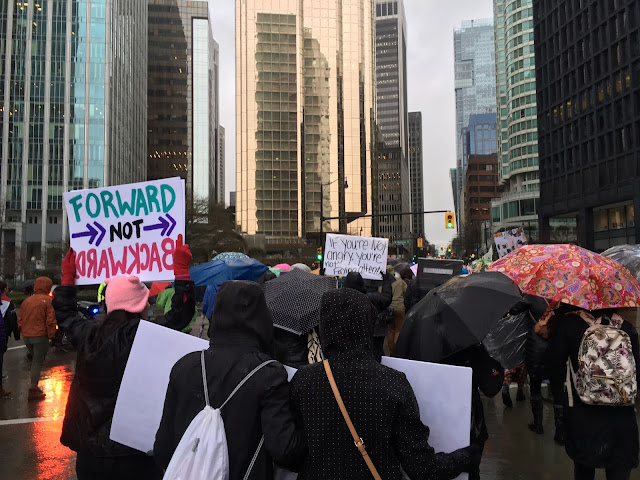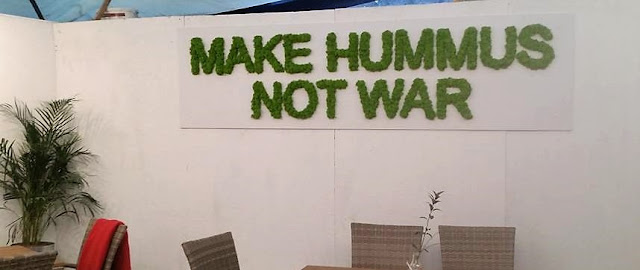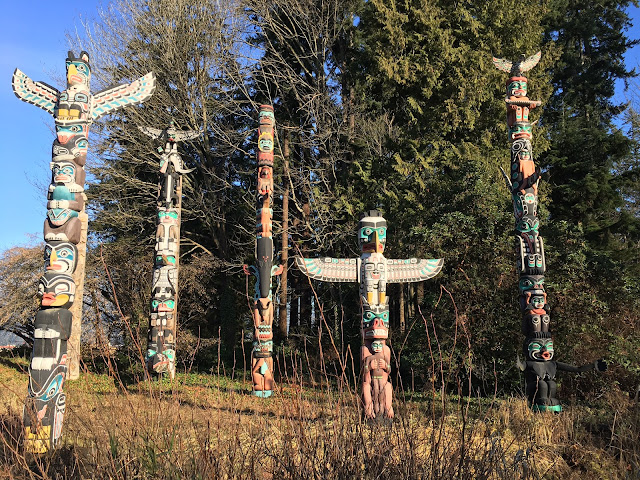March on Vancouver 2018
Last weekend thousands of Vancouverites braved the grey
skies and pouring rain for March On Vancouver,
a defiant push for women’s rights.
A lively crowd of empowered and unapologetic women and their
allies of husbands, brothers and fathers collected in Canada Place. The weather
was cold and the rain persistent, but this did not stop an atmosphere of
defiance and unity. But, of course, we were not the only ones. Across the continent
thousands of others marched alongside us - coast to coast, Province to State -
in a continental and untied March for Women’s Rights. As the anniversary to the
March that took place one year ago in protest of Donald Trump’s inauguration,
it seems the event has become – or will become – a tradition: an annual march
to defend women’s rights and to take the next step in fighting inequality. After
all, women’s rights are human rights.
After last year’s March fell under criticism for failing to
represent all women, this year March On Vancouver took great strides towards obtaining
an intersectional approach and representing all
female experience. Speeches were delivered
from Ariam Yetbarek and Azuka Kamdibe of the Black Lives Matter Movement, Hailey
Heartlesss, a trans-gender sex worker, Noor Fadel, an 18 year old Muslim woman,
Lorelei Williams, an indigenous woman who has experienced two family members go
missing from the Downtown Eastside, and many more. This diverse range of female
experience reinforced to the crowd of onlookers that feminism cannot be feminism
without intersectionality, and all voices must be heard and included if we are
really to progress. As Hailey Heartless defiantly said, “I am allowed to be
here” – and indeed all women, regardless of race, sexuality, age or class,
deserves to be here and part of this movement.
The event opened with two hours of powerful speeches. Eleven
moving addresses were delivered that morning, but three in particular stood out
to me. I found Hailey Heartless’ speech particularly eye-opening. Hailey reported that when it had been announced that
she would speak at March On Vancouver she received a lot of hate from people
protesting that transgender women and sex workers have no place within women’s
rights. She even said that she did not attend last year’s rally because she
thought “maybe I wasn’t allowed to be
here”. This is reflective of a wider social ignorance. The stigma surrounding
sex workers in Vancouver is extensive, painting them as immoral and diseased.
They exist as one of the most marginalised groups within this city. However,
these women do not deserve to be judged or stigmatized due to their occupation,
and they certainly do not deserve to be placed in a vulnerable and dangerous position
because of it. Current laws that make it illegal to purchase sex actually place
sex workers in more danger, by forcing them to work in more isolated areas to
avoid the police. As long as there is an interest, sex work will continue, and so
criminalising the work does not prevent it from happening. In order for sex
workers to be truly protected and safe in their environment, sex work needs to
be de-criminalized. For this to happen, societal perceptions of sex workers must
first change, and I believe Hailey’s speech will have been very influential in achieving
this. She had two important messages: “It
is not our responsibility to fix sex offenders. It’s not our role to be an outlet
for potential rapists. If they violate your boundaries, they’re going to
violate ours. Please don’t push people who use sex to cause harm onto us”. She
also addressed the negativity surrounding the term “prostitution”: “We face stigma from activists who refuse to
call us sex workers, but instead call us prostitutes. This language is owned by
police and the prison system and is designed to rob us of our agency…when you
use the language of the people trying to cause us harm, you’re sending a clear
message of exclusion”. Hailey’s speech was incredibly powerful in challenging
common perceptions of sex workers. Despite her belief that she was not “allowed”
to attend the protest the previous year, her position as a prominent speaker in
this year’s campaign is a clear example of March On Vancouver’s more intersectional
approach. You can read the full notes from Hailey Heartless’ speech here.
Beginning with tears and overwhelmed by the support on such
an occasion, another fantastic speech was delivered by Noor Fadel, an 18 year
old Muslim poet. Noor had recently suffered an attack on the SkyTrain as a result
of her religion and her gender, but she opened her speech by re-defining herself
outside of her harassment, and instead with her age, her religion, and her poetry.
She recited her poem, “I Forgive”, - a poem addressing her attacker - in a truly
moving performance of defiance and forgiveness. Such bold wisdom and strength
from someone so young was truly inspirational. Islamophobia does occur in
Canada all of the time, as Noor’s story reveals, and it is vital that we end
this racist rhetoric. Although it is sometimes daunting and frightening, if we
see someone speaking disrespectfully about another’s religion we have to try
and correct them. If you see something, say something.
For myself, the other most moving aspect of the event was
the speech delivered by Lorelei Williams continuing the discussion on the
missing and murdered Indignenous women. 75 women have disappeared from the
Downtown Eastside, including Lorelei’s aunt and cousin. Her cousin’s DNA was
found on Robert Pickton’s farm along with that of 26 other girls. Such news is disturbing
and horrifying, and the absence of these women continues to haunt the community.
There are still 39 unsolved cases of missing women, and so it is clear that the
inquiry into this issue is far from over. Lorelei spoke to to mourn her lost family
and to demand change. Her speech was followed by a performance from the Butterflies
in Spirit, a dance group established to honour the missing women and to increase
awareness and activism around this issue. The pain in the words “Where is my
sister?”, repeated throughout the song as they performed, rippled across all of
those gathered in Canada Place. As the Women’s Memorial March occurs in just over
two weeks time, Lorelei’s speech was crucial in motivating those present to attend
the event to honour and commemorate the women that have gone missing from the Downtown
Eastside. If you want to find out more about the Women’s Memorial March taking place
on February 14th the official website is here.
But of course, these were not the only important speeches of
the day – everyone that spoke did so inspiringly. And with the words of these powerful
women in our minds we turned to march into the streets of Vancouver to make our
voices heard. Chants of “My body, My Choice” and “The Patriarchy has got to go”
filled the air. Signs and posters lit up the sky, with words such as “Silent No
More” and “The Fempire Strikes Back”. We
marched defiantly past the Trump tower, which was met with ‘Boos’ from thousands
of onlookers as they condemned it as a symbol of the patriarchal, sexist and
abusive president to our south.
The March was an absolutely fantastic event. The knowledge I
gained from hearing those eleven women speak and the sense of community and
empowerment that surrounded Canada Place was truly eye-opening. It is also incredible
to know that we were marching alongside hundreds and thousands of other women
on the continent. As Angela MacDougall reinforced to us in her speech, if we
are actually going to make a change, we now need to move the conversation on
from being just a conversation, and instead take direct action. Events such as
this are how we do this. If you see something, say something. We can make a
difference in our everyday lives and say NO to harassment, abuse and inequality.
If we are standing from a position of privilege, we need to become an ally to
others. We need to begin with changing in our own lives, before we can make a difference
elsewhere.
I strongly encourage you to take a look at the campaign’s FacebookGroup to see images from the event, inspiring posters and also to find out more
about the next steps we can take towards progress. In the words of Angela MacDougall,
truth is on the rise!
This event took place on the unceded Coast Salish territories, the
traditional terrirorites of the xʷməθkwəy̓əm (Musqueam), Sḵwx̱wú7mesh (Squamish), and Səl̓ílwətaʔ
(Tsleil-Waututh).




Comments
Post a Comment